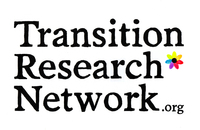Accountability
Researchers have multiple responsibilities, to participants, research partners and to the communities they work with, as well as to professional practice and institutions
+problem
The “accountability” of researchers is often contested. For example, increasingly the pressures on academic researchers are to prioritise accountability to the institutions that employ them, rather than the communities or groups they work with outside the University.
+background
Researchers have multiple responsibilities, to participants, research partners and to the communities they work with, as well as to professional practice and institutions. It can be hard to navigate between these, as the pressures they entail may conflict. Approaches such as Participatory Action Research provide inspiration and a framework for doing this. The more research is conducted (or at least directed) from in-house, the more it is likely to be accountable to the goals of Transition. Where collaboration with external researchers takes place, lines of accountability need to be clear to all - see An agreed level of collaboration.
Accountability does not mean purely serving the needs of an organisation like Transition. It does mean, as a minimum, being clear about aims and procedures, and reporting back on findings and outcomes of the research. Many researchers find ways to bridge the multiple demands of accountability, often in creative ways (see Practices).
+solution
Whether research is carried out within Transition, in collaboration or by an external researcher, accountability to Transition applies as well as to other organisations or interests.
